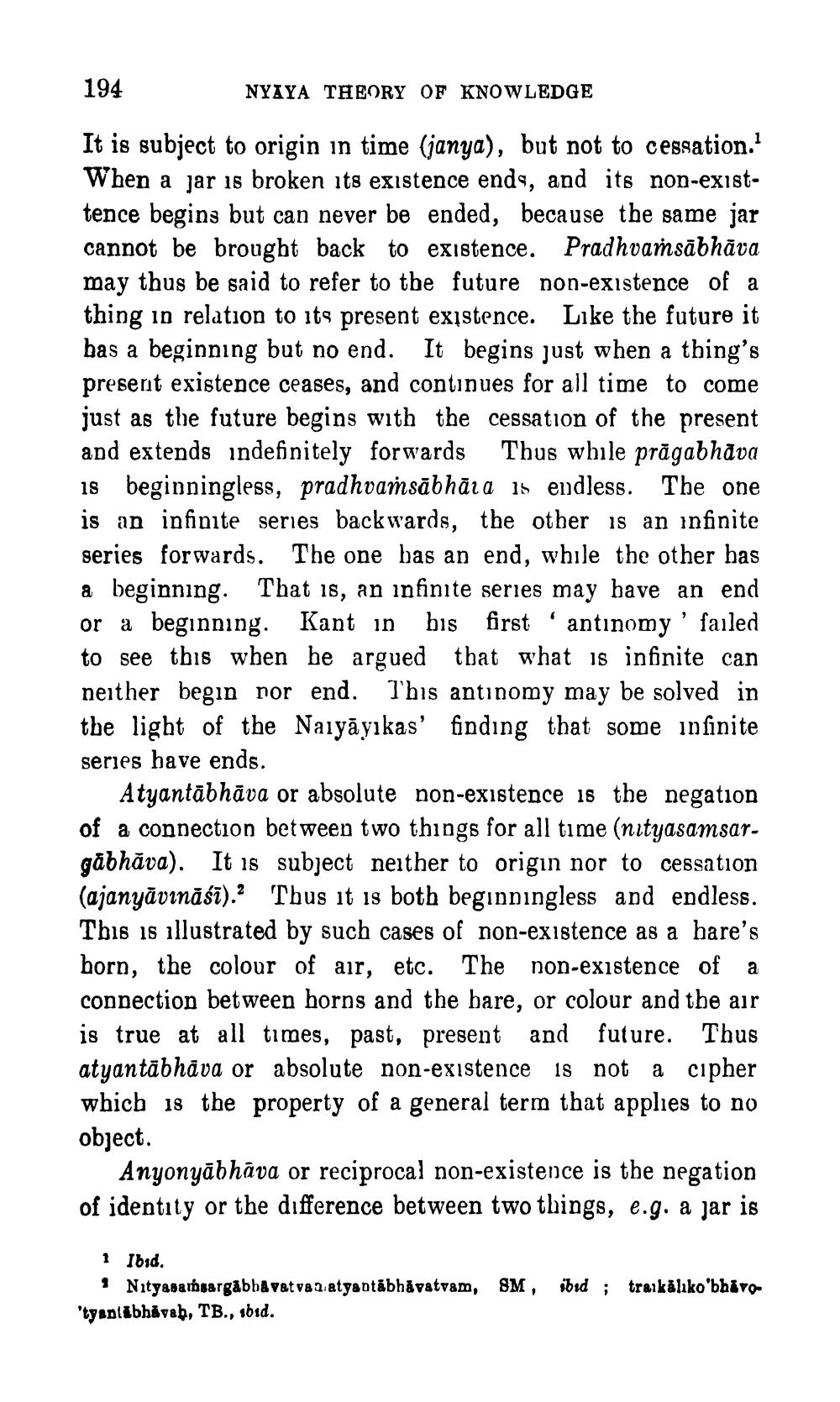________________
194
It is subject to origin in time (janya), but not to cessation.1 When a jar is broken its existence ends, and its non-existtence begins but can never be ended, because the same jar cannot be brought back to existence. Pradhvamsabhava may thus be said to refer to the future non-existence of a thing in relation to its present existence. Like the future it has a beginning but no end. It begins just when a thing's present existence ceases, and continues for all time to come just as the future begins with the cessation of the present and extends indefinitely forwards Thus while pragabhāva is beginningless, pradhvamsabhāra is endless. The one is an infinite series backwards, the other is an infinite series forwards. The one has an end, while the other has a beginning. That is, an infinite series may have an end or a beginning. Kant in his first antinomy' failed to see this when he argued that what is infinite can neither begin nor end. This antinomy may be solved in the light of the Naiyayikas' finding that some infinite series have ends.
NYAYA THEORY OF KNOWLEDGE
Atyantābhāva or absolute non-existence is the negation of a connection between two things for all time (nityasamsargābhāva). It is subject neither to origin nor to cessation (ajanyāvināśī). Thus it is both beginningless and endless. This is illustrated by such cases of non-existence as a hare's horn, the colour of air, etc. The non-existence of a connection between horns and the hare, or colour and the air is true at all times, past, present and future. Thus atyantābhāva or absolute non-existence is not a cipher which is the property of a general term that applies to no object.
Anyonyabhava or reciprocal non-existence is the negation of identity or the difference between two things, e.g. a jar is
1 Ibid.
1 Nityasamsargābhāvat van atyantābhāvatvam, SM, 'tyantabhavaḥ, TB., 1bid.
ibid ;
traikaliko'bhāvo




